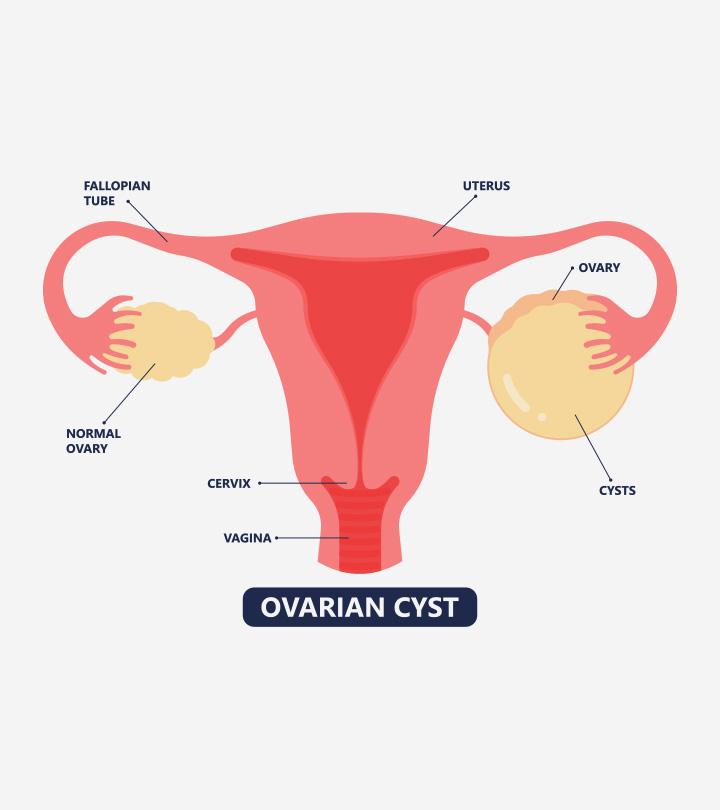
Ovarian Cysts and Pregnancy
Introduction
Ovarian cysts are fluid-filled sacs that develop on the ovaries. They are common in women of all ages, but they are most often diagnosed during the reproductive years. Most ovarian cysts are benign (non-cancerous), and they do not cause any symptoms. However, some ovarian cysts can cause pain, bloating, and other problems.
Ovarian cysts can occur during pregnancy, and they can sometimes cause complications. In most cases, however, ovarian cysts do not pose a serious threat to the mother or the baby.
Types of Ovarian Cysts
There are many different types of ovarian cysts. The most common type is the functional cyst. Functional cysts are formed when a follicle (the sac that contains an egg) does not rupture and release the egg. These cysts usually resolve on their own within a few months.
Other types of ovarian cysts include:
- Dermoid cysts: These cysts contain tissue from different parts of the body, such as hair, skin, and teeth.
- Cystadenomas: These cysts are filled with a clear or watery fluid.
- Endometriomas: These cysts are filled with blood and tissue from the lining of the uterus.
Symptoms of Ovarian Cysts
Most ovarian cysts do not cause any symptoms. However, some cysts can cause:
- Pain in the lower abdomen or pelvis
- Bloating
- Nausea and vomiting
- Difficulty urinating or defecating
- Painful intercourse
- Irregular menstrual periods
Diagnosis of Ovarian Cysts
Ovarian cysts are usually diagnosed during a pelvic exam. Your doctor may also order an ultrasound to confirm the diagnosis. An ultrasound is a painless procedure that uses sound waves to create images of the ovaries.
Treatment of Ovarian Cysts
Most ovarian cysts do not require treatment. However, some cysts may need to be treated if they are causing symptoms or if they are at risk of rupturing. Treatment options for ovarian cysts include:
- Medication: Medications can be used to shrink cysts or to prevent them from recurring.
- Surgery: Surgery may be necessary to remove a cyst if it is large, if it is causing symptoms, or if it is at risk of rupturing.
Ovarian Cysts and Pregnancy
Ovarian cysts can occur during pregnancy, and they can sometimes cause complications. However, in most cases, ovarian cysts do not pose a serious threat to the mother or the baby.
The most common type of ovarian cyst that occurs during pregnancy is a functional cyst. Functional cysts are usually small and do not cause any symptoms. They usually resolve on their own within a few months.
Other types of ovarian cysts that can occur during pregnancy include:
- Dermoid cysts: These cysts are usually small and do not cause any symptoms. However, they can sometimes grow large and cause pain or other problems.
- Cystadenomas: These cysts are usually filled with a clear or watery fluid. They can sometimes grow large and cause pain or other problems.
- Endometriomas: These cysts are usually filled with blood and tissue from the lining of the uterus. They can sometimes grow large and cause pain or other problems.
Risks of Ovarian Cysts During Pregnancy
Ovarian cysts can sometimes cause complications during pregnancy, such as:
- Torsion: This is a condition in which the ovary twists on its stalk. Torsion can cause severe pain and can lead to the loss of the ovary.
- Rupture: This is a condition in which the cyst breaks open. Rupture can cause severe pain and can lead to bleeding and infection.
- Premature birth: Ovarian cysts can sometimes cause premature birth if they are large or if they cause torsion or rupture.
Treatment of Ovarian Cysts During Pregnancy
Most ovarian cysts do not require treatment during pregnancy. However, some cysts may need to be treated if they are causing symptoms or if they are at risk of rupturing. Treatment options for ovarian cysts during pregnancy include:
- Medication: Medications can be used to shrink cysts or to prevent them from recurring.
- Surgery: Surgery may be necessary to remove a cyst if it is large, if it is causing symptoms, or if it is at risk of rupturing.
Prognosis for Ovarian Cysts During Pregnancy
The prognosis for ovarian cysts during pregnancy is generally good. Most cysts do not cause any problems and resolve on their own within a few months. However, some cysts can cause complications, such as torsion, rupture, or premature birth. If you have an ovarian cyst during pregnancy, it is important to see your doctor regularly to monitor the cyst and to treat any complications that may arise.